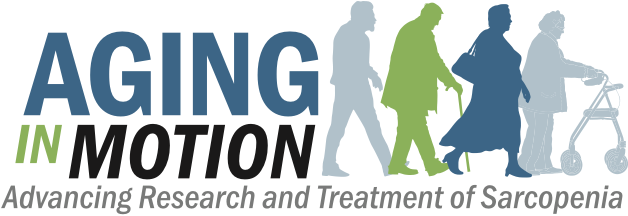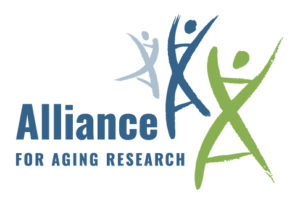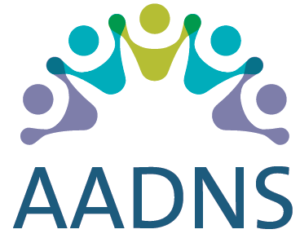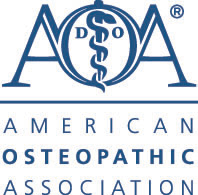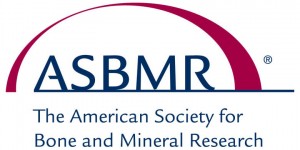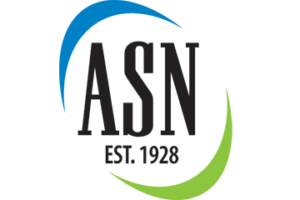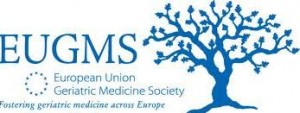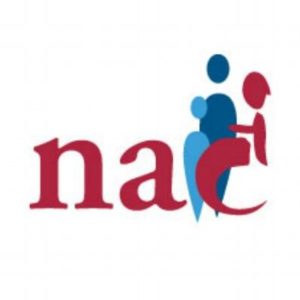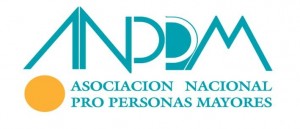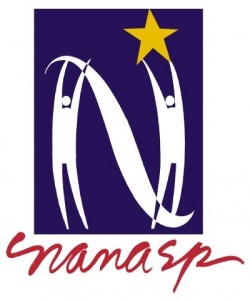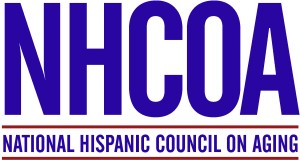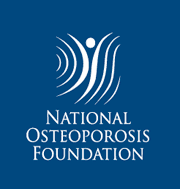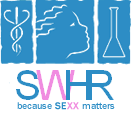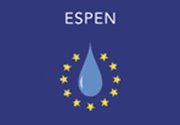AIM coalition members include a variety of organizations and people who work on age-related functional decline. Member organizations represent patients, providers, caregivers, consumers, aging Americans, researchers, employers and the health care industry.
Members List
-
Academy of Nutrition and Dietetics
The Academy of Nutrition and Dietetics is the world’s largest organization of food and nutrition professionals. The Academy is committed to improving the nation’s health and advancing the profession of dietetics through research, education and advocacy.
Mission: Empowering members to be the nation’s food and nutrition leaders
Vision: Optimizing the nation’s health through food and nutritionApproximately 72 percent of the Academy’s more than 72,000 members are registered dietitians (RDs) and 2 percent are dietetic technicians, registered (DTRs). Other Academy members include students, educators, researchers and international members. Nearly half of all the Academy’s members hold advanced academic degrees.
Academy members represent a wide range of practice areas and interests. Affiliate, dietetics practice, and member interest groups share the common purpose of serving the profession, the public, and members in such areas as continuing professional education, public information on nutrition and health, government advocacy and relations, membership recruitment, Academy leadership, and public relations. These membership groups reflect the many characteristics of the Academy’s membership and the public it serves.
Featured Resources:
Healthy Aging: Nutrition Resources and Information for Older Adults
Article: Nutrition’s Role in Sarcopenia Prevention -
Alliance for Aging Research
The private, not-for-profit Alliance for Aging Research is a national citizen advocacy organization working to improve the lives of Americans as they grow older by advancing biomedical and behavioral research in aging and health. The Alliance was founded in 1986 to promote and accelerate medical and scientific research into aging. As America’s Baby Boom is transformed to an unprecedented Senior Boom, the Alliance is a valued and respected voice in the nation’s capital: developing, implementing and advocating programs in research, health education and public policy.
-
Alliance for Regenerative Medicine
The Alliance for Regenerative Medicine (ARM) is a Washington, DC-based non-profit organization that promotes legislative, regulatory and reimbursement initiatives necessary to facilitate access to life-giving advances in regenerative medicine. ARM also works to increase public understanding of the field and its potential to transform human healthcare, and provides services to support the growth of its member companies and organizations. Prior to the formation of ARM, there was no advocacy organization operating in Washington, DC to specifically represent the interests of regenerative medicine companies, research institutions, investors, and patient groups supporting more rapid adoption of technologies in our field.
What ARM does
Alliance members work together to:
- introduce and support policies that pave the way for development of new regenerative medicine therapies, medical devices and diagnostics;
- coalesce multiple, diverse stakeholders to ensure the healthcare system supports ready access to regenerative medicine products (i.e., U.S. and international government agencies, private insurers, providers, consumer groups, private healthcare enterprises);
- promote government and private funding of R&D in regenerative medicine;
- create visibility for advances in the field;
- work with regulators including the Food and Drug Administration (FDA) to encourage more rapid clinical translation of regenerative medicine technologies;
- develop sustainable business models and improve access to capital;
- provide broad-based education about regenerative medicine, including potential treatments for chronic diseases; and
- encourage a global dialogue about the new meaning of treatment, prevention and healthcare, and the evolving prospects for human health that derive from regenerative medicine.
-
American Association of Directors of Nursing Services
The American Association of Directors of Nursing Services (AADNS) is a non-profit membership organization dedicated to leading and empowering DONs/DNSs with best-in-class education, resources, legislative representation, and a strong collaborative community that advocates for and ensures resident-directed long-term and post-acute care communities.
During a series of Nurse Leadership Summits convened during 2015, nurse leaders across the country identified the need for a strong national professional nursing association that would empower nurses as leaders, lead the change for a new care delivery model, and elevate the voice of our profession. In March 2016, AADNS launched with the objective to meet these needs and to advance resident-directed care.
-
American Federation for Aging Research
The American Federation for Aging Research (AFAR) is a national non-profit organization whose mission is to support and advance healthy aging through biomedical research.
Key Initiatives
AFAR focuses its activities on these major initiatives:- Identifying and funding a broad range of cutting-edge research most likely to increase knowledge about healthy aging.
- Attracting more physicians to specialize in geriatric medicine to meet the demands of an aging population with expert health care.
- Creating opportunities for scientists and clinicians to share knowledge and exchange ideas to drive innovation in aging research.
- Providing information to the public on new medical findings that can help people live longer lives, less susceptible to disease and disability.
AFAR was founded in 1981 to fund and nurture talented scientists and physicians, and to encourage them to pursue lifelong careers in research focused on aging processes and age-related diseases. Today, three decades later, AFAR has provided more than $132 million in support of researchers in aging and to encourage the training of new scientists and physicians in geriatric research and in the practice of geriatric medicine. The important work AFAR supports, leads to a better understanding of the aging process and to improvements in the health of all Americans as they age.
Learn more about AFAR on their website.
-
American Geriatrics Society
The American Geriatrics Society (AGS) is a not-for-profit organization of over 6,000 health professionals devoted to improving the health, independence and quality of life of all older people. The Society provides leadership to healthcare professionals, policy makers and the public by implementing and advocating for programs in patient care, research, professional and public education, and public policy.
AGS Mission
To improve the health, independence and quality of life of all older people.AGS Vision for the Future
Every older American will receive high quality patient-centered care.Strategies for Achieving the AGS Vision
- Expanding the geriatrics knowledge base through initiatives that promote basic, clinical and health services research regarding the health of older adults.
- Increasing the number of healthcare professionals employing the principles of geriatric medicine when caring for older persons by supporting the expansion of geriatric education in all applicable health professions, and promoting the development of systems of care and practice redesign that facilitates the provision of quality geriatric care.
- Recruiting physicians and other healthcare professionals into careers in geriatrics through efforts to ensure that geriatrics is a viable, attractive, and rewarding career choice
- Guiding public policy through advocacy so policy supports improved health and healthcare for seniors
- Raising public awareness of the need for high-quality, culturally sensitive geriatric healthcare so an empowered, proactive public can help drive improvements in the quality of care that older persons receive.
-
American Osteopathic Association
Representing more than 78,000 osteopathic physicians (DOs) around the world, the American Osteopathic Association (AOA) serves as the professional family for all DOs and osteopathic medical students. In addition to serving as the primary certifying body for DOs, the AOA is the accrediting agency for all osteopathic medical schools and has federal authority to accredit hospitals and other health care facilities.
Continually striving to be the premier home for the osteopathic medical community, the AOA stands for the following universal principles:
- Enhancing the value of AOA membership
- Protecting and promoting the rights of all osteopathic physicians
- Accentuating the distinctiveness of osteopathic principles and the diversity of the profession
- Supporting DOs’ efforts to provide quality, cost-effective care to all Americans
- Collaborating with others to advance the practice of osteopathic medicine
-
American Physical Therapy Association
The American Physical Therapy Association (APTA) is an individual membership professional organization representing more than 80,000 member physical therapists (PTs), physical therapist assistants (PTAs), and students of physical therapy. APTA seeks to improve the health and quality of life of individuals in society by advancing physical therapist practice, education, and research, and by increasing the awareness and understanding of physical therapy’s role in the nation’s health care system.
-
American Society for Bone and Mineral Research
The American Society for Bone and Mineral Research (ASBMR) is a professional, scientific and medical society established to bring together clinical and experimental scientists involved in the study of bone and mineral metabolism.
The ASBMR membership comprises basic research scientists, and clinical investigators in bone and mineral metabolism and related fields along with physicians and other healthcare practitioners. Current worldwide membership numbers approximately 4,000 with interests in biomechanics, cell biology, molecular biology, dentistry, developmental biology, endocrinology, epidemiology, internal medicine, metabolism, molecular genetics, nephrology, obstetrics-gynecology, orthopaedics, pathology, pharmacology, physiology, rheumatology and other research/clinical areas.
ASBMR encourages and promotes the study of this expanding field through annual scientific meetings, an official journal (Journal of Bone and Mineral Research), the Primer on the Metabolic Bone Diseases and Disorders of Mineral Metabolism, advocacy and interaction with government agencies and related societies.
Featured Resources:
–Muscle and Bone Interactions – Webcast from the ASBMR 2011 Annual Meeting on new research on cellular interactions and connections between bone and muscle function
–Forum on Bone and Skeletal Muscle Interactions: July 17-18, 2012, Kansas City, Missouri, USA. Drawing together leading muscle and bone researchers to exchange ideas, develop new collaborations and accelerate the emerging scientific discoveries in the area of muscle and bone interactions. Deadline for abstract submissions: February 29, 2012. More info here -
American Society for Nutrition
The American Society for Nutrition (ASN) is a non-profit organization dedicated to bringing together the world’s top researchers, clinical nutritionists and industry to advance our knowledge and application of nutrition for the sake of humans and animals. Our focus ranges from the most critical details of research and application to the broadest applications in society, in the United States and around the world.
Through excellence in nutrition research and practice, ASN’s members enhance scientific knowledge and quality of life. The Society supports its members and fulfills its mission by fostering and enhancing research in animal and human nutrition; providing opportunities for sharing, disseminating, and archiving peer-reviewed nutrition research results (at its annual meeting and in its official publications); fostering quality education and training in nutrition; upholding standards for ethical behavior in research, the protection of human subjects, and the care and treatment of research animals; providing opportunities for fellowship and support among nutritionists; and bringing scientific knowledge to bear on nutrition issues through communication and influence in the public domain.
ASN was founded in 1928 as the American Institute for Nutrition. Today, the Society encompasses both research and clinical focuses and is building upon its rich 80-year history. In 2005, the American Society for Clinical Nutrition, the American Society for Nutritional Sciences (formerly the American Institute for Nutrition) and the Society for International Nutrition merged to form ASN.
ASN is a constituent society of the Federation of American Societies for Experimental Biology (FASEB). Founded in 1912 by three societies, FASEB has consistently provided educational meetings and publications to disseminate biological research results. FASEB advances biological science through collaborative advocacy for research policies that promote scientific progress and education and lead to improvements in human health. ASN members have additional benefits through our association in FASEB. Visit the FASEB website or download the FASEB Benefits Brochure for ASN Members for more details
-
B’nai B’rith International
B’nai B’rith International: Advocating for Seniors and Creating Affordable Homes
B’nai B’rith International is one of the most staunch supporters of senior issues, fighting for proper health care and creating safe, affordable, low-income housing for those in need.
B’nai B’rith International, the global voice of the Jewish community, is the most widely known Jewish humanitarian, human rights, and advocacy organization. Since 1843, BBI has worked for Jewish unity, security, continuity, and tolerance. BBI’s reach extends to more than 50 countries around the world.
Today B’nai B’rith International is a national and global leader in the fight against anti-Semitism and anti-Israel bias; provides senior housing and advocacy on issues of vital concern to seniors and their families; helps communities in crisis; and promotes Jewish identity through cultural activities.
The work of B’nai B’rith International is focused in its centers. These centers provide the framework for intensive study of issues and thoughtful responses through the combined efforts of dedicated volunteer leaders and professional staff.
The Center for Senior Services (CSS) provides the tangible — housing and practical information on aging — and the intangible — advocacy and national leadership — on issues affecting Jewish seniors. BBI is the largest national Jewish sponsor of senior housing in the United States and operates nearly 50 fixed-income and market-rate housing facilities worldwide. BBI brings programs and services to seniors and gives them the opportunity to take control of their own futures. Through a steady flow of information on topics as far-ranging as Medicare Part D and aging safely in place to national and international advocacy on vital issues such as income protection and stem cell research, BBI presents a concerned voice for all seniors.
-
Comfort Keepers
Comfort Keepers is widely recognized as a leading provider of quality in-home care to seniors and other clients who need help with the activities of daily living. Our goal is to enrich the lives of our clients as we enable them to maintain the highest possible level of independent living in their own home for as long as possible.
The special people who deliver our unique brand of in-home care, who we call Comfort Keepers, are carefully selected, screened and trained to provide professional, compassionate care.
Now with 600 franchised offices in the United States, Canada, Ireland, Australia, New Zealand and Singapore, Comfort Keepers has been named by INC. Magazine as one of the fastest growing franchise systems in the U.S. We were rated a “World Class Franchise” by the Franchise Research Institute in May 2009 and were listed in the “Top 200” list by Franchise Times in Oct 2009.
Comfort Keepers is dedicated to keeping seniors healthy and independent, and nutrition is an essential component to our work every day. In response to a growing need for awareness about senior nutrition, the Comfort Keepers system has launched a campaign to create awareness for the importance of a healthy diet for those 65 and over. STOP Senior Hunger Community Awareness campaigns are taking off all over the United States, Canada and Portugal too! Contact an office near you to find out how you can help raise awareness of senior hunger and malnutrition issues in your area.
-
European Union Geriatric Medicine Society
The European Union Geriatric Medicine Society, EUGMS, is the collaborating and co-ordinating organisation of the national geriatric medical societies of the European Union member states, but also includes Switzerland. The EUGMS’ mission is to develop geriatric medicine in all member states as a recognised independent medical specialty, contributing to the care of all older people with age-related diseases.
The mission of the EUGMS is:
- To develop geriatric medicine in the member states of the European Union as an independent specialty caring for all older people with age-related disease
- To support that these services become available to all citizens of the European Union
- To promote education and continuing professional development, and in particular a biennial scientific meeting
- In conjunction with the Section of Geriatric Medicine of the EUMS, to promote geriatric medicine to the European Commission and Parliament
- To promote evidence-based guidelines for the most efficacious preventive and treatment strategies for older people in the European Union
For further reading on the EUGMS, click here.
-
European Working Group on Sarcopenia in Older People
The European Working Group on Sarcopenia in Older People (EWGSOP) developed a practical clinical definition and consensus diagnostic criteria for age-related sarcopenia. EWGSOP included representatives from four participant organisations, i.e. the European Geriatric Medicine Society, the European Society for Clinical Nutrition and Metabolism, the International Association of Gerontology and Geriatrics—European Region and the International Association of Nutrition and Aging. These organisations endorsed the findings in the final document.
The group met and addressed the following questions, using the medical literature to build evidence-based answers: (i) What is sarcopenia? (ii) What parameters define sarcopenia? (iii) What variables reflect these parameters, and what measurement tools and cut-off points can be used? (iv) How does sarcopenia relate to cachexia, frailty and sarcopenic obesity?
For the diagnosis of sarcopenia, EWGSOP recommends using the presence of both low muscle mass + low muscle function (strength or performance). EWGSOP variously applies these characteristics to further define conceptual stages as ‘presarcopenia’, ‘sarcopenia’ and ‘severe sarcopenia’. EWGSOP reviewed a wide range of tools that can be used to measure the specific variables of muscle mass, muscle strength and physical performance. Our paper summarises currently available data defining sarcopenia cut-off points by age and gender; suggests an algorithm for sarcopenia case finding in older individuals based on measurements of gait speed, grip strength and muscle mass; and presents a list of suggested primary and secondary outcome domains for research.
Once an operational definition of sarcopenia is adopted and included in the mainstream of comprehensive geriatric assessment, the next steps are to define the natural course of sarcopenia and to develop and define effective treatment.
-
Gerontological Advanced Practice Nurses Association
GAPNA represents the interests of certified advanced practice nurses who work with older adults in a wide variety of practice settings. GAPNA is the organization of choice for advanced practice nurses who want to pursue continuing education in gerontological care and who seek peer support from experienced clinicians.
The goals of the Gerontological Advanced Practice Nurses Association are as follows:
- Advocate quality care for older adults.
- Promote professional development.
- Provide continuing gerontological education.
- Enhance communication and professional collaboration among healthcare providers.
- Educate consumers regarding issues of aging.
-
Gerontological Society of America
The Gerontological Society of America (GSA) is the oldest and largest interdisciplinary organization devoted to research, education, and practice in the field of aging. GSA’s principal mission — and that of its 5,400 members — is to advance the study of aging and disseminate information among scientists, decision makers, and the general public.
The Society, founded in 1945, is the driving force behind the advancement of gerontology both domestically and internationally. Its members come from over 40 countries.
GSA fosters collaboration between biologists, health professionals, policymakers, and behavioral and social scientists. We believe the intersection of research from diverse areas is the best way to achieve the greatest impact and promote healthy aging.
To further fulfill its mission, GSA assembles over 3,500 professionals from around the world to an Annual Scientific Meeting. This monumental event now features over 400 sessions each year. Additionally, GSA publishes the field’s preeminent peer-reviewed journals.
Through networking and mentorship opportunities, GSA provides a professional “home” for career gerontologists and students at all levels. GSA knows these individuals are our legacy and it is crucial to foster those who follow in our footsteps.
The Mission of The Gerontological Society of America is:
- To promote the conduct of multi- and interdisciplinary research in aging by expanding the quantity of gerontological research and by increasing its funding resources;
- To disseminate gerontological research knowledge to researchers, to practitioners, and to decision and opinion makers; and
- To promote, support, and advocate for aging education, and education and training in higher education.
The major objectives of this mission are:
- To promote scientific study of aging in both the biomedical and behavioral/social sciences;
- To stimulate communications among scholarly disciplines, and among professionals including researchers, teachers, administrators, and others;
- To disseminate research findings by means of its publications;
- To expand education in aging, including the promotion of educational programs in gerontology;
- To foster application of research in the development of public policy;
- To develop the qualifications of gerontologists by setting high standards of professional ethics, conduct education, and achievement.
-
International Council on Active Aging
International Council on Active Aging connects a community of 9,200 like-minded organizations and professionals who share the goals of changing society’s perceptions of aging and improving the quality of life for aging Baby Boomers and older adults within the seven dimensions of wellness (emotional, vocational, physical, spiritual, intellectual, social, environmental). The council supports these professionals with education, information, resources and tools so they can achieve optimal success.
-
Men’s Health Network
Men’s Health Network (MHN) is a national non-profit organization whose mission is to reach men, boys, and their families where they live, work, play, and pray with health prevention messages and tools, screening programs, educational materials, advocacy opportunities, and patient navigation.
MHN’s Goals:
- Save men’s lives by reducing premature mortality of men and boys
- Foster health care education and services that encourage men of all ages to implement positive lifestyles for themselves and their families
- Increase the physical and mental health of men so that they can live fuller and happier lives
- Significantly reduce the cycles of violence and addiction that afflict so many men
- Energize government involvement in men’s health activities so that existing government health networks can be utilized to increase the health and well-being of men and boys
- Encourage women to expand on their traditional role as the family’s health care leader and activist for enhancement of health care services
-
National Alliance for Caregiving
Established in 1996, The National Alliance for Caregiving is a non-profit coalition of national organizations focusing on issues of family caregiving. Alliance members include grassroots organizations, professional associations, service organizations, disease-specific organizations, a government agency, and corporations.
The Alliance was created to conduct research, do policy analysis, develop national programs, increase public awareness of family caregiving issues, work to strengthen state and local caregiving coalitions, and represent the US caregiving community internationally. Recognizing that family caregivers provide important societal and financial contributions toward maintaining the well-being of those they care for, the Alliance’s mission is to be the objective national resource on family caregiving with the goal of improving the quality of life for families and care recipients.
-
National Association for Hispanic Elderly
The National Association for Hispanic Elderly [Asociación Nacional Pro Personas Mayores] was founded in 1975 to serve the needs of Hispanic elderly and other low income persons. It is recognized as the pioneer and the leading organization in the field of Hispanic Aging. It has become one of the broadest based Hispanic organizations in the nation. It is a private, non-profit 501(c)(3) corporation with both public and private funding. It has earned a national reputation for its work with the elderly and for its increasingly significant role in the larger Hispanic community.
The scope of the Association’s work includes employment programs, services for the elderly, economic development projects which include low-income housing and neighborhood development programs, research and data collection, training and technical assistance, development of model projects, and award winning media productions. The Association has an extended network of over 500 public and private community service organizations throughout the nation.
The Association is proud of its achievements which are founded on commitment to excellence in its service, and integrity in its management of resources for Hispanic and low-income communities.
Mission Statement
The National Association for Hispanic Elderly / Asociación Nacional Pro Personas Mayores is committed to achieving social change by focusing on the needs of low-income minority and Hispanic older persons, thus impacting the Hispanic community and the nation as a whole. We believe in the right of each human being to have a decent and dignified life. Because of this belief, we attempt to provide some visible means of achieving such a way of life, especially for low-income older persons, many of whom, because of language and cultural differences, are more vulnerable than their contemporaries. In response to the needs of the low-income elderly, we provide programs of employment and training, health, housing and economic development. Aware of ongoing societal changes, we attempt to remain open and creative in our corporate commitment to older persons and the Hispanic Community. -
National Association of Directors of Nursing Administration in Long Term Care
Since 1986, the National Association of Directors of Nursing Administration in Long Term Care have been THE leading advocate and educational organization for DONs, ADONs and RNs in Long Term Care (LTC). NADONA/LTC was founded by dedicated LTC professionals, and its board of trustees still consists of LTC professionals. NADONA/LTC understands the daily challenges of the field, and serves to provide LTC professionals with the tools needed for professional success.
It is the charter of this association to promulgate and foster a network of Directors of Nursing and Assistant Directors of Nursing in long term care. To that end, the association endeavors to provide education, communication and service to the members it serves. Through the NADONA/LTC Code of Ethics, Constitution and Charter, the association supports and promotes quality of care for those individuals receiving long term care, and concern for those delivering long term care.
-
National Association of Nutrition and Aging Services Programs
The National Association of Nutrition and Aging Services Programs is a national membership organization for persons across the country working to provide older adults healthful food and nutrition through community-based services.
NANASP is proud to be a leading organization advocating for community-based senior nutrition programs and their staff. With members from across the United States, we are able to impact local, state and national public policy to maintain and improve the health and well-being of all older persons.
-
National Bone Health Alliance
The National Bone Health Alliance (NBHA) is a public-private partnership that brings together the expertise and resources of partners from the non-profit, public and for-profit sectors.
The NBHA is a platform that allows all voices in the bone health community to harmonize to deliver clear, concise messages about bone health by facilitating ongoing dialogue among interested individuals and organizations engaged in bone health activities and identifying shared priorities and projects that can become reality through pooled funding.
NBHA is developing three initial projects: a secondary fracture prevention initiative, public and health professional awareness campaign, and bone turnover marker standardization project. In addition, NBHA serves as an advocate for topics important to bone health, most notably Vitamin D, Calcium, dual energy x-ray absorptiometry (DXA) reimbursement and utilization and the long-term use of bisphosphonates and other therapies.
The members of the Alliance are working from a shared vision: to improve the overall health and quality of life of all Americans by enhancing their bone health.
The NBHA’s areas of focus include:
- Promote bone health and prevent disease
- Improve diagnosis and treatment
- Enhance research, surveillance and evaluation
Read more – click to read an overview of the NBHA, including a list of its members.
-
National Hispanic Council on Aging
The National Hispanic Council on Aging (NHCOA) is the nation’s premier constituency-based organization that advocates, celebrates, and enhances the quality of life for Hispanic older adults, their families, and their communities. Headquartered in Washington, DC, NHCOA empowers its national network of 42 community-based organizations (CBOs) in supporting a broader network of 7,000 individuals and reaching 10 million Hispanics each year.
The health and wellbeing of our padres and abuelitos is directed related to the care and nurturing they receive from their families and communities. Therefore, as an organization with almost 40 years’ experience and a strong community presence, we focus on sharing the best of us so that our elders fully enjoy their golden years in good health and securely alongside friends and family.
To accomplish this goal, NHCOA works closely with its national network of affiliates, government agencies, and private-sector entities to promote high-quality services and effectively advocate for our aging Hispanic population.
At the local level, NHCOA provides CBOs with training, technical assistance, sub-grants, and access to the latest research and most effective programs. NHCOA also helps local groups form partnerships and coalitions to enhance their resources, influence, and reach. At the national level, NHCOA educates legislators on the aging community’s needs and contributions, and contributes to crafting permanent solutions for the public policy issues compromising the security, health, happiness, and dignity of America’s fastest-growing senior population.
We invite you to explore our website and join NHCOA in sharing the best of us!NHCOA’s Top Priorities:
- Health
- Economic Security
- Empowerment
- Housing
-
National Osteoporosis Foundation
The National Osteoporosis Foundation (NOF) is the leading consumer and community-focused health organization dedicated to the prevention of osteoporosis and broken bones, the promotion of strong bones for life and the reduction of human suffering through programs of public and clinician awareness, education, advocacy and research.
Established in 1984, NOF is the nation’s leading voluntary health organization solely dedicated to osteoporosis and bone health.
Osteoporosis is a major public health threat for an estimated 44 million Americans. Of the 10 million American’s estimated to already have osteoporosis, eight million are women and two million are men. NOF recognizes the importance of the prevention of osteoporosis and broken bones and promotes programs of public and clinician awareness, education, advocacy and research.
-
National Partnership for Women and Families
The National Partnership for Women and Families believes that actions speak louder than words, and for four decades the organization has fought for every major policy advance that has helped women and families.
Today, National Partnership promotes fairness in the workplace, reproductive health and rights, access to quality affordable health care, and policies that help women and men meet the dual demands of work and family.
Founded in 1971 as the Women’s Legal Defense Fund, the National Partnership for Women & Families is a nonprofit, nonpartisan 501(c)3 organization located in Washington, DC.
-
Society for Women’s Health Research
The Society for Women’s Health Research is the nation’s only non-profit advocacy group whose sole mission is to improve the health of women through research. The Society was founded in 1990 when it brought to national attention the problem of the exclusion of women from major medical research studies and the resulting need for greater funding for research on conditions experienced by women. The Society works to increase public and private funding for research on women’s health, promote the inclusion of women in medical research studies, and encourage the scientific examination of the basic biological and physiological differences between men and women.
Today, SWHR advocates for greater public and private funding for women’s health research and the study of sex differences:
- Affects the prevention, diagnosis, and treatment of disease;
- Encourages the appropriate inclusion of women and minorities in medical research studies;
- Promotes the analysis of research data for sex and ethnic differences; and
- Informs women, health care providers, and policymakers about contemporary women’s health issues through media outreach, congressional briefings, public education campaigns, conferences, and special events.
-
The European Society for Clinical Nutrition and Metabolism
The European Society for Clinical Nutrition and Metabolism (ESPEN) is dedicated to all issues relevant to the field of clinical nutrition and metabolism and promotes:
- basic and clinical research
- basic and advanced education
- organization of consensus statements about clinical care and care quality control
The aims of ESPEN are to encourage the rapid diffusion of knowledge and its application in the field of Parenteral and Enteral Nutrition or, more broadly, Clinical Nutrition and Metabolism.
ESPEN sponsors a journal and for which it assumes editorial, as distinct from publishing, responsibility.
It promotes experimental and clinical research, fosters high ethical standards of practice and investigation, and promotes contact between investigators and clinicians in related fields.
